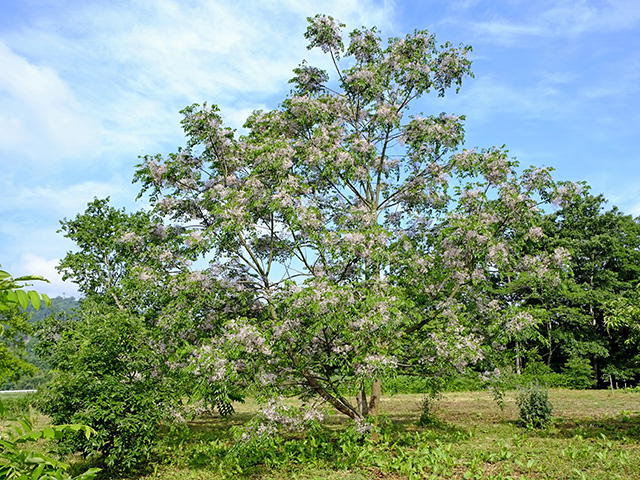Ask The Vet
Downed Trees Can Be Toxic to Cattle
READER QUESTION:
We had a bad windstorm and lost a lot of trees. One of them was a chinaberry, and it was just loaded with berries. When I found it, several of my cows were eating those berries. I moved them off of that pasture until I got the tree cut up and burned. As far as I could tell, none of them got sick. Now, I'm wondering if chinaberries are dangerous to cows, so if this ever happens again, I'll know what to do.
P[L1] D[0x0] M[300x250] OOP[F] ADUNIT[] T[]
DR. MCMILLAN'S ANSWER:
I have never diagnosed any problems in cattle from eating chinaberries, but I do remember as a small child watching the migrating robins literally getting drunk on the fermented berries in late winter and early spring. Toxicity has been reported in pigs, cattle, horses, dogs, rabbits and even people. The toxins are most concentrated in the berries.
Clinical signs include salivation, colic, diarrhea and vomiting. With the consumption of larger amounts, signs can include muscle contractions, tremors, collapse and even death. So, yes, you did the right thing when you removed your cattle from that pasture.
For those unfamiliar with this tree, the chinaberry is native to India, Southeast Asia and Australia. It was imported in the 1930s as an ornamental and planted across the South. Like so many of these imported plants and trees, it is now considered by many to be an invasive species. The tree can grow to up to 50 feet tall. It has prolific fragrance and beautiful purple flowers in the spring. Its leaves can be up to 20 inches long with multiple leaflets. The fruit is a hard, round ball that remains on the tree through late winter and into spring.
Downed trees are a common source of toxicity and even death in livestock. Over the years in our area, most of these cases have involved wild cherry, oak and acorns, and mountain laurel. It varies from area to area.
I would be interested in hearing from readers who have had problems with downed trees and livestock. This could be helpful to other producers and raise awareness of potential problems.
**
Editor's Note: Please contact your veterinarian with questions about the health of your herd or other animals. Every operation is unique, and the information in this column does not pertain to all situations. This is not intended as medical advice but is purely for informational purposes. Email Dr. Ken McMillan at vet@dtn.com.
(c) Copyright 2024 DTN, LLC. All rights reserved.





